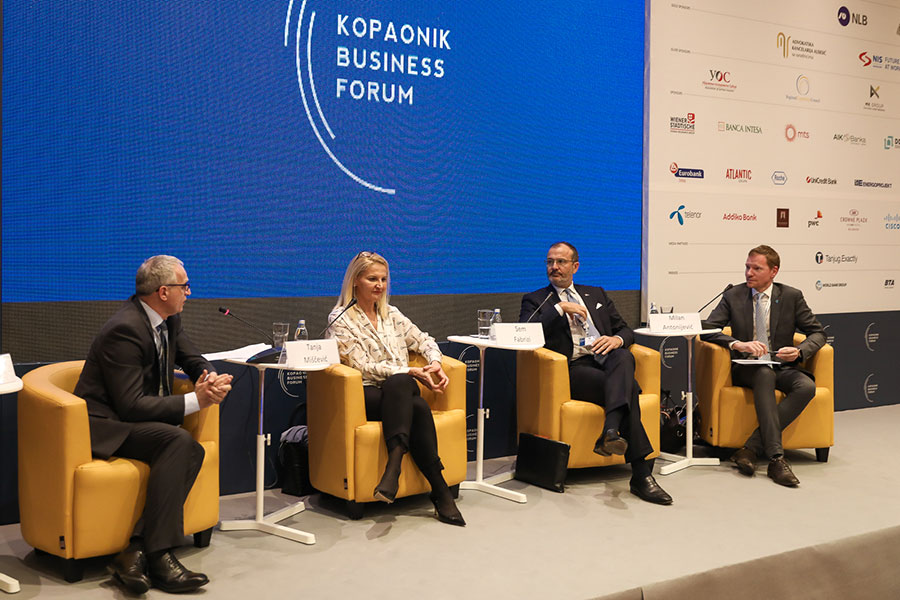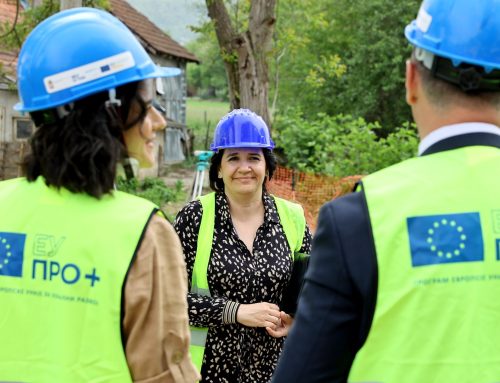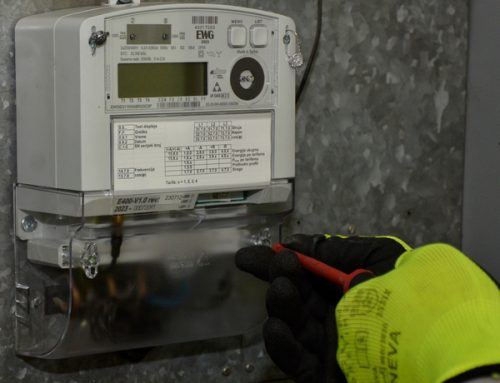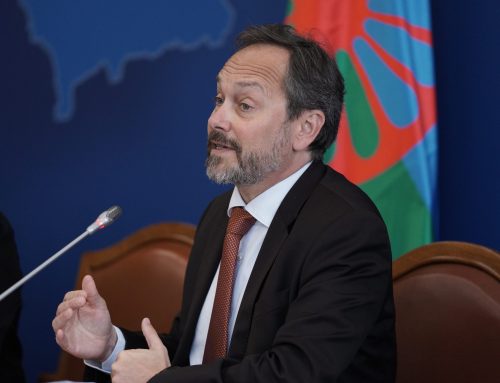The pace of the Serbia’s European integration mostly depends on the implementation of reform processes in the country itself, and it is up to the Balkan countries to show that joining the Union would benefit the whole block – is the conclusion of the panel on European perspective of the country at the Kopaonik Business Forum. Head of the EU Delegation to Serbia Ambassador Sem Fabrizi, Head of the Negotiating Team of Serbia Tanja Miščević and the Executive Director of the Open Society Foundation Milan Antonijević took part in the discussion moderated by former Minister of Foreign Affairs Goran Svilanović.
The year behind us was good for the whole region in terms of European future, additionally improved by the agreement on the name of Macedonia and submission of questionnaire by Bosnia and Herzegovina, which is a necessary step for acquiring the status of the candidate country. Serbia has been in that status since 2014, and has been working on harmonization of legislation with the EU acquis ever since.
“The chapters should not be observed as totems, but as the instrument of negotiations, which are extensive and have to be divided. Serbia has opened 16 chapters, and closed 2 out of 35, so you can see for yourself the point the process is at,“ said Fabrizi. He believes that the joint task is to accelerate the reforms enough, first of all in rule of law, and in certain areas of the economy.
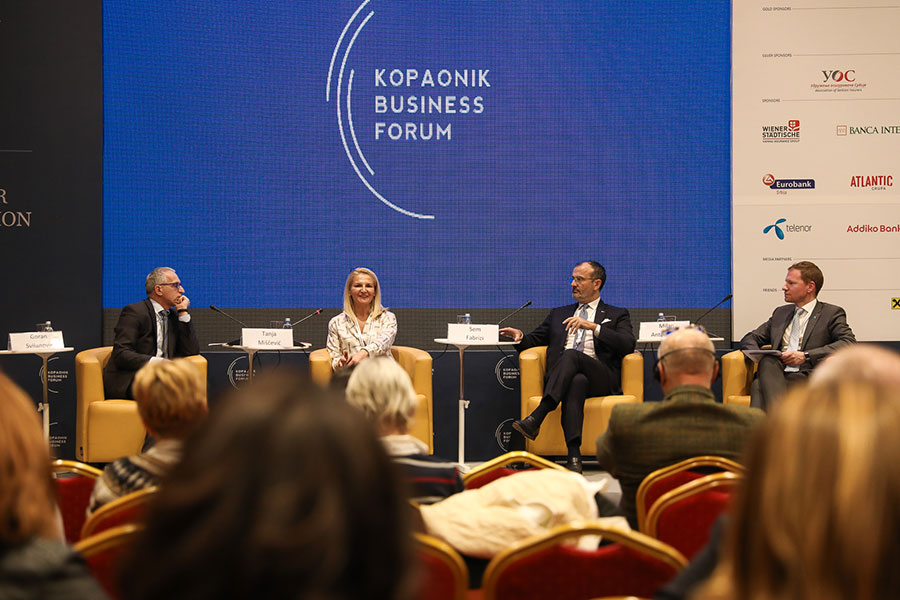 “Accession to the European Union does not depend on the time passing, like becoming an adult. Time has to be used wisely. One of the Commission’s suggestions was 2025 as a reasonable deadline, ambitious but possible. In order for that to happen, it is necessary to complete all the reforms by 2023, and then there is a two-year period of ratification in the parliaments of the Member States, as well as the European MEPs that are not easy to convince,” says Fabrizi.
“Accession to the European Union does not depend on the time passing, like becoming an adult. Time has to be used wisely. One of the Commission’s suggestions was 2025 as a reasonable deadline, ambitious but possible. In order for that to happen, it is necessary to complete all the reforms by 2023, and then there is a two-year period of ratification in the parliaments of the Member States, as well as the European MEPs that are not easy to convince,” says Fabrizi.
Antonijević, as the NGO sector representative, says that there is still a lot to do in the field of judiciary system and fight against corruption, as well as that turmoil in Europe due to Brexit should not prevent the reform processes in candidate countries.
“We can implement reforms and show Europe that we can make a positive contribution. The agreement of Serbia and Kosovo* is that kind of positive contribution, as we can say that the Union was formed out of economic reasons, but it is also a peace project,“ says Antonijević.
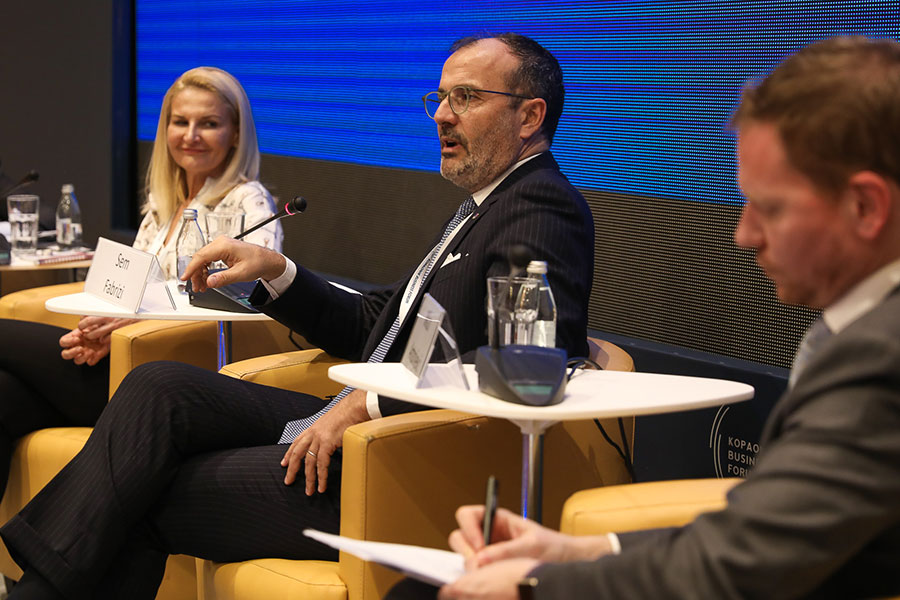 Tanja Miščević also emphasizes that the process is more important than the date of the accession to the European Union. Rule of law matters, along with topics like food quality and public administration reform that are being forgotten. She adds that it is difficult to establish a debate in a country in which there has been no debate for a long time.
Tanja Miščević also emphasizes that the process is more important than the date of the accession to the European Union. Rule of law matters, along with topics like food quality and public administration reform that are being forgotten. She adds that it is difficult to establish a debate in a country in which there has been no debate for a long time.
“Apart from the reform of state institutions, the society needs to reform as well, and that may be the most significant element of the European integration process, to understand that we are now working on becoming the full part of the European public policy, protecting our own interests in the course of making the environmental policy of the European Union. It is in the best interest of Serbia,“ says the Head of the Negotiating Team of Serbia for the European integration.
The European perspective of Serbia will be in focus at the beginning of the second day of the Forum, colloquially called the Serbian Davos, as the participants will be addressed by the Director-General for European Neighbourhood Policy and Enlargement Negotiations, Christian Danielsson.
* This designation is without prejudice to positions on status, and is in line with UNSCR 1244/1999 and the ICJ Opinion on the Kosovo declaration of independence

